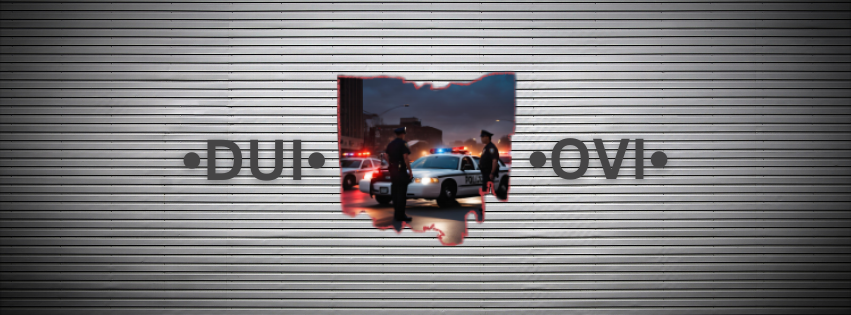PLEASE NOTE: Ohio Expungement law was updated in October of 2023. Some information in this article may be out of date. We cover the most recent changes in our overview of sealing and expungement laws in Ohio for 2024 .
We are once again revisiting the topic of Expungement and Sealing of criminal records in Ohio. There is plenty of information on the subject already on our website. We wrote a general overview on the expungement process for 2019, and then detailed the changes that have been made since then so that you could stay up to date on Expungement laws in Ohio for 2022. Now that we have gone through many of the details in the laws, we can talk specifically about the two things required for you two be eligible to have your record sealed in Ohio. Remember, that being eligible does not mean your Application for Expungement or Sealing of Records will automatically be accepted. Courts can reject Expungement Applications for any number of reasons. To be eligible in the first place, there are two things you need: Your crime must be an expungeable offense and you must be an eligible offender. We discuss both of those requirements below.
What Offenses are Eligible Offenses for Expungement in Ohio?
There are several reasons why a criminal offense may not be expungeable in Ohio.
The Ohio Revised Code must not specifically prohibit the expungement of the offense
First of all, Ohio Revised Code Section 2953.36 lists several crimes that are not expungeable. For a criminal record to be expunged, the crime in question must NOT be on that list. This list of non-expungeable offenses includes Rape, Sexual Battery, Gross Sexual Imposition, Sexual Imposition, Pandering Obscenity Involving a Minor or Impaired Person, Illegal Use of Minor or Impaired Person in Nudity-Oriented Material or Performance, and crimes involving the operation of a motor vehicle. There are a few additional situations listen in ORC 2953.36 that could keep a criminal record from being sealed.
If the offense is a crime of violence, it must NOT be a misdemeanor of the first degree or a felony
Crimes of violence are also oftentimes not eligible for expungement in Ohio. Some crimes of violence are on the list above, so of course they cannot be expunged. Other crimes of violence can sometimes be expunged depending on the seriousness of the conviction. No crime of violence that is a misdemeanor of the first degree or a felony can be expunged. In other words when it comes to crimes of violence they cannot be expunged if they are on the list of prohibited expungement OR if they are misdemeanors of the first degree OR if they are felonies. If none of those conditions apply, there is a possibility that a crime of violence could be expunged, but still no guarantee.
We have another article that talks about which crimes are considered crimes of violence in Ohio.
The waiting period associated with the crime on your record must be over
Finally, if the nature of the crime itself does not prohibit you from having the record expunged, you still have to wait the appropriate amount of time before you can have the record expunged.
If your criminal record is eligible based on all the conditions above, and it does not fall under some other exception that would keep it from being expunged, you still may need to think about the second main requirement for the criminal record to be expunged. Your offense may meet the requirements to apply for expungement, but the second requirement is that you as the offender are eligible as well. We talk about eligible offenders in the next section.
Am I an Eligible Offender for Expungement in Ohio?
The definition for “Eligible Offender” in Ohio can be confusing. ORC 2953.31 lists two ways that someone can be an eligible offender. The first way is to have a record with no violent crimes and nothing more serious than a fourth degree felony. That means that if you have a first, second, or third degree felony anywhere on your record, you could be an ineligible offender for all the crimes that might be on your record. The same is true for crimes of violence regardless of the degree. For example if you had a felony of the fourth degree and a felony of the first degree on your record, the felony of the first degree could cause problems, even if you only tried to expunge the felony of the fourth degree. A felony of the fourth degree is an eligible offense, but the felony of the first degree can keep you from being an ineligible offender. Here is another example. Suppose you had two misdemeanors of the second degree on your record and only one is a crime of violence. You may not be able to expunge the non-violent misdemeanor because of the violent misdemeanor on your record. Notice we say “could” because having these crimes on your record does not always make you an ineligible offender by themselves. Remember, there are many potential exceptions to the rules here. Furthermore, there is still another part to the definition in ORC 2953.31.
The second part of the definition states that if the first part does not apply to you, there is another way to be an eligible offender. In fact under ORC 2953.31(A)(1)(b), there is more than one additional way to become an eligible offender. If you have two felonies or less, you may be an eligible offender. If you have four misdemeanors or less, you may be an eligible offender. If you have two felonies and two misdemeanors but no other crimes, you may be an eligible offender.
These two definitions are mutually exclusive, which can be a little bit confusing. The rules are particularly confusing when it comes to crimes of violence that are not misdemeanors of the first degree or felonies, and when it comes to felonies of the third degree. These crimes are particularly confusing because sometimes second and third degree misdemeanors of violence can themselves be expunged. At the same time, under the first definition, they can keep you from becoming an eligible offender. The same is true for third degree felonies. This is where we have to remember the second definition. If you do not have too many misdemeanors of felonies according to the last paragraph, you might be able to have third degree felonies, lesser crimes of violence, or other crimes you may have on your record expunged. Again, there are so many exceptions to the rules, you should not take this information as a prediction of what will happen if you apply for expungement. This article is simply information to help you understand the general rules. Give us a call if you feel that you may have an argument that your record should be expunged. In addition to exceptions to the rules, it is possible for a Court to deny an application for expungement even if the applicant was an eligible offender with an eligible offense.
Why Would my Application for Expungement be Denied?
Given everything we have discussed above, there are three main reasons why your Application for the Sealing of your criminal record could be denied:
- The offenses you are trying to expunge are not eligible offenses
- You are not an eligible offender
- The Court does not grant the expungement application
We have discussed the first two reasons at length, but we have only mentioned the third one. So why would a Court choose not to expunge your record even though you were an eligible offender with an eligible offense? It would be hard to give any concrete examples, but essentially the Court may simply think the interest of the public to have access to the record outweighs the offender’s interest in having it sealed. Whether or not the Court feels that sealing the record aligns with public interest really just depends on the situation.
Conclusion
We understand why someone with a criminal record would want to have the record expunged. The rules are complicated, so many people with a criminal record in Ohio may not know if they are eligible for expungement or not. As we mentioned, with all the little exceptions to the rules and numerous applicable sections in the ORC, it is hard to know right away if an individual can have their record expunged. Even if an offender is eligible, nothing is for certain until the sealing of the record is granted by the Court. If you would like help with the process of expunging your criminal record, or if you need any other type of legal help or advise, feel free to contact the attorneys at Dearie, Fischer & Martinson.





